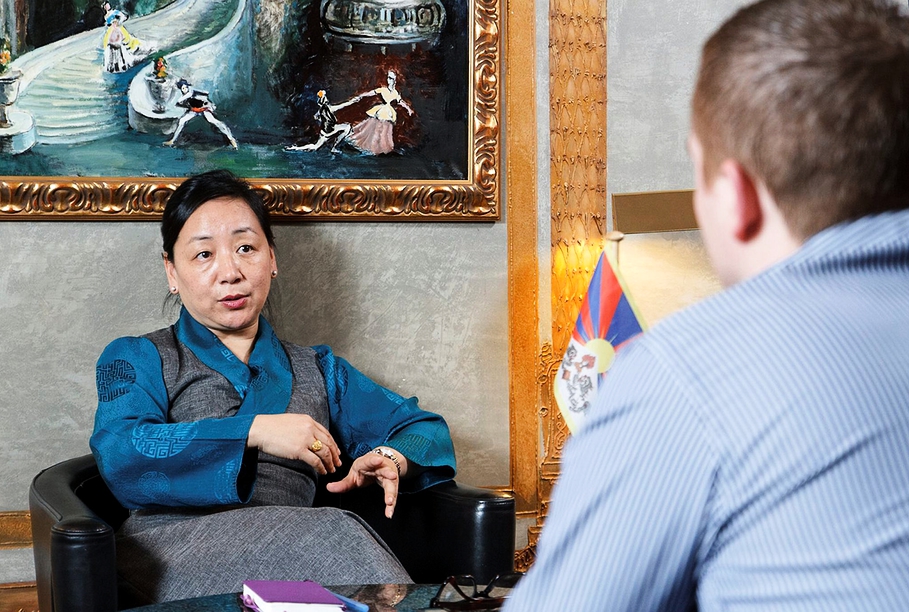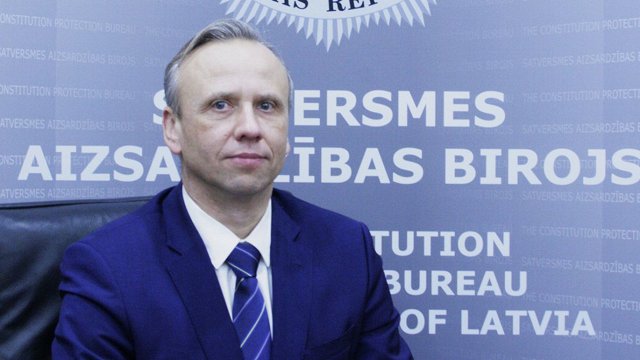Despite an official snub by Latvia’s Ombudsman Juris Jansons, who cited the imperative to remain neutral in the wake of official Chinese diplomatic protests against the visit by the Tibetan exiled government’s shadow foreign affairs minister, Kalon Dicki Chhoyang gave several media interviews, including to news portal Delfi, Baltic News Agency, daily newspaper Diena and paid alternative cultural politics channel Satori TV.
The representative to the world of Tibet’s exiled Central Administration spoke to Latvian students about the Middle Way Approach (MWA) toward peace that the DIIR is proposing China accept as a way of resolving the political crisis of its occupation of the mountainous Buddhist region that has been denied autonomy throughout modern history. Since 2009 the crisis has been tragically inflamed by 135 individual self-immolations by Tibetans of various ages and walks of life, and the Kalon urged the students to visit the microsite dedicated to the Middle Way Approach to learn more about how such further sacrifices could be rendered unnecessary.
The site reported and posted photos of her visit with Saeima’s Tibet Support Group, chaired by Mārtiņš Šics of the Regional Alliance. In her address to the parliamentary friendship group she spoke about the current state of political repression, cultural assimilation, economic marginalisation, environmental destruction and the lack of religious freedom inside Tibet. Kalon Dicki Chhoyang then explained in detail the CTA’s MWA proposal for resolving the Tibet issue.
In her interview with Delfi published Sunday she said that the reluctance of Latvia’s state officials to host formal meetings with representatives of the CTA was a lost chance for the presiding state of the Council of the EU to show leadership and understanding of the possibility of speaking to Tibet without stepping on China’s constitutional interests.
“Latvia itself has lived through a heavy occupation time, Latvia is aware how hard it is to live through such a regime. Latvia should remember how important is the awareness that the world outside hasn’t forgotten about your yearning for freedom. I also believe that the Latvian people would not be together with their government on this issue of Tibet. The people of Latvia would know what the morally correct action would be,” she said.




























